- Home
- Dave Gross
Hell's Pawns Page 2
Hell's Pawns Read online
Page 2
"Oh, that was nothing," she says. "Just a little exercise I'd been copying."
She sees me looking past her shoulder and turns to see Ivo Elliendo flanked by his Hellknights. Beside me, the kid gulps, and I lay a heavy hand on his shoulder to keep him calm and still.
"What is this commotion?" demands Elliendo. His eyes have already lit upon Ursio's dropped crossbow, and he idly smacks his folded gloves against his left palm.
"My friend Gruck here was just delivering a piece of evidence," I say. "This crossbow might have been used in some Cheapside robberies last year. Gruck found it in a pawn shop and thought of me."
Elliendo steps closer, and his Hellknights step behind us to cut off escape. They bring a whiff of brimstone into the alley.
"I heard a loud noise," says Elliendo. He slaps my hand away from Gruck's shoulder with his gloves and chucks the boy under the chin to get a good look at his face. The scrapes are obvious. "Has this half-breed assaulted you, boy?"
The kid doesn't even flick his eyes toward me as he says, "No, I fell."
"Ah," says Elliendo. "How did you fall, boy? What precisely caused your fall?"
"It was—I saw a rat run out at me. A big rat."
"Indeed," says Elliendo. "That does not explain the sound."
"Biggest alley cat you ever saw," I say, holding my hands about three feet apart.
"I asked the boy, hellspawn. When I desire your—"
"It's true, Paralictor," says the woman.
Elliendo peers down at her. "And who might you be, Miss…?"
"Henderthane," she says. "Pavanna Henderthane."
Elliendo's stern countenance melts into a gentler expression. "My condolences. Einmarch Henderthane was a loyal servant of the crown." He seems ready to say something more, but he glances at me and the kid before deciding against it. "I trust whatever business you have with this person is nothing to do with—"
"It is a personal matter, Paralictor," she says. "I know you understand."
His curt frown says he may understand, but he doesn't like it. "Very well," he says. "I see no reason to delay you further. Good day, Miss Henderthane." Ignoring Gruck and me, he clicks his heels and nods a bow toward her before pivoting on his heel and striding away with his Hellknights in tow. I like the way his half-cloak swirls when he does that. He must spend hours in front of the mirror practicing.
"Nice job, kid." I turn toward Gruck, but he is already trotting down the alley. I shrug and collect Ursio's crossbow and the misfired bolt. Sniffing it, I am relieved to detect the stench of sewer moss, not a proper poison. My scratch will itch for a while, but I won't need to spend my savings on a magical cure. I look at Pavanna and say, "I owe you one."
"Then get me an interview with Count Jeggare." She smiles, as pleased by the game as by her success at it.
"It doesn't work like that," I tell her. Before she can protest, I add, "But I'll see what I can do. Let's discuss it over a couple of ales."
"You're buying," she says. That's all right by me.
Three hours later I hop over the wall behind the boss's gardens, wave to the groundskeeper, and let myself in through the kitchen door. Inside, I bump into Malla, a plump human almost as short as her lone slip assistant. The place smells of fresh rye, and I make a show of craning my neck to spot a loaf to filch while snaking a hand in to pinch her bottom. She shakes a rolling pin at me. Our daily pantomime.
"How is the weather upstairs?" I ask.
"Gloomy," she says. "His lordship was asking after you."
I wind my way through the labyrinth of the servants' area and up the stairs to the foyer, where I glance up. The enormous portrait of Pontia Jeggare stares down with an expression of stern benevolence. I never met the boss's mother, of course, but even eighty years after her funeral, she remains the lady of the house. I tip her a wink, because I think she'd have liked me.
The butler intercepts me at the top of the steps. His arms are full of parcels and letters, an overwhelming load for a halfling.
"Make yourself useful," he says, thrusting his burden toward me. He nods in the direction of the library.
The boss still calls it the library even though the two floors of ceiling-high bookshelves are hidden by a calamity of bric-a-brac. On three long tables filling half the lower floor is an array of stuffed and mounted creatures. Among the dead menagerie are jars of dried plants, bones, rocks, muddy fluids, and a few nasty-looking creatures preserved in dark liquids. There are weapons and parts of weapons, costumes from far countries, paintings and carvings, shards of pottery, animal skins, nautical devices, dwarven measuring tools, brushes, clamps, magnifying glasses, and terrariums. The place looks like a warehouse full of
all the confiscated belongings of a legion of crackpots and packrats.
The other half of the room contains several globes of the world, and models of the nearby worlds in a gnome-built contraption the boss calls an orrery. More than anything else, on easels and tables and podiums, the boss has maps. A few are the grand inked and illustrated maps agreed upon by sages and ministers of states, but most are hand-drawn, some of them so recently or so long ago that charcoal dust rises from the parchment at a touch.
The boss slumps in a stuffed leather chair by the fire, one knee hooked over the arm. A fine crystal glass full of a concoction he calls Faerie Fire dangles from his long fingers. That's a bad sign, because the potent liquor puts him in a darker mood when he's been brooding, as he has ever since the Bonner case.
"I know what will cheer you up," I say, setting the parcels down on another chair. "We have a new challenge." The boss doesn't like "cases," "jobs," or "missions." He likes "problems," "puzzles," and "conundrums."
He sighs and runs a hand through his black hair, thick and long as a horse's tail. His dark violet eyes are half-lidded, and I would almost swear his tapered, half-elven ears are drooping just before he leaps out of the chair.
"They're here!" He tears open one of the parcels and sets aside a stack of journals. The second is a small crate that he fumbles over for a moment before letting me pry off the lid. He reaches in and from the packing straw withdraws a mask of painted mahogany. It is the face of a Mwangi spirit. This I know because of some of the boss's previous acquisitions, all of them sent by the so-called Pathfinders who report their excursions to him.
Realizing I've lost his attention until he has revealed each of the new treasures and the accompanying reports, I take a seat. When he isn't looking, I pour the remaining Faerie Fire into a potted Qadiran olive tree. As he reads the letters from his Pathfinders, I light one of those pungent Taldan cigars he detests. At first he is oblivious to the distraction, but then one of my smoke rings passes between his face and the vellum he is reading. He carefully refolds the letter and turns toward me, waving the fumes away until I stub out the cigar on the back of my hand and tuck the butt into a sleeve pocket.
"Out with it."
I tell him Pavanna's story.
"She believes her father was murdered despite the ruling of natural death."
"Which it couldn't have been," I say, "because the cleric she hired to contact her father's spirit can't reach it."
"That does not prove murder," says Jeggare, "but it is an anomaly."
"The real puzzle is why her brother would inherit the entire estate, after her father announced publicly that his will included a generous legacy for her."
"It is not unusual for disinherited nobles to make such claims," he says. "And the executor of Henderthane's estate is reputable."
"The boss is relentless in his pursuit of justice... when he feels like it."
"But there was no bad blood between father and daughter, or even between brother and sister," I say. "It's a mystery."
"No," says Jeggare. He spots his empty glass and shoots me a suspicious glance. "It is a tedious family squab
ble."
"What about the mother?" I say. "In the event of his death, she was to have received an annuity. It is common knowledge."
"Yes," says Jeggare, "it is common, tawdry, and completely devoid of gravity."
He is in a particularly foul mood, and I don't want to make it worse, but more than that I don't want to tell Pavanna that I can't return her favor.
"I suppose you're right, boss," I say. "Elliendo said you'd never take up this one."
Sometimes that ploy works, but not this time. With a bored sigh, Jeggare turns back to pluck at his Pathfinder reports.
"‘What could interest Jeggare about a disinherited opera singer?' he said." I think I capture Elliendo's sneering tone, even if perfect mimicry is not foremost among my talents. While he hasn't been to the opera for months, it is one of Jeggare's cyclical passions. "‘To him, the disgrace of Drulia Henderthane is far too sentimental an affair for him to risk his—'"
"Drulia Henderthane?" says the boss. "You neglected to mention that name."
"She's the mother."
"I was there the night she performed." His voice takes on a wistful tone, and for a moment I think I'm in for a story. Instead, he stares across the library, forgetting about the Pathfinder reports as his mind drifts back in time. I know better than to interrupt his reverie. It means he is reaching a decision. I thrust my thumbs between my middle fingers for luck.
"Very well," he says, striding to the wall where he pulls the cord to summon his butler. "I shall send a message to House Henderthane. While we await a reply, wash yourself. You smell of sulfur and the sewers, and also of an expensive Andoren perfume."
"It was strictly business, boss."
"Once you are clean, fetch your livery."
When I wear that ridiculous footman's costume, I feel I should be grinding one of those dwarven music boxes and capering for coppers in the street. "But boss—"
"No arguments," he says, and I know this is only the beginning of his revenge.
Chapter Two: House Henderthane
The most notable legacy from Count Varian Jeggare's elven father is the red carriage.
Half the size of the other famous vehicle in Cheliax, it displays nothing like the royal carriage's gold leaf or nine hundred tiny carvings of the city's war heroes, diabolic and otherwise. Elven braids line its seams and twist into elaborate knots at its joints, but its lacquered panels are otherwise unadorned. The deep color comes from the wood itself, harvested over a hundred years ago from the Verduran Forest. Four men can ride comfortably inside, if no one slouches. Sometimes the boss lets me join him there, but not this afternoon. He's still irritated that I brought him the Henderthane case.
From the footman's perch, I can see over the head of the slip driver, another advantage of the boss's mostly halfling domestic staff. I would enjoy the breeze if the Jeggare livery weren't strangling me. As I tug at the collar, I spot a familiar figure at the corner of Ivy Lane. He turns away, but I've already marked him as one of Ivo Elliendo's informants. Despite his celebrated intellect, the paralictor hasn't realized his men's faces are known throughout the city.
Just as I'm about to slide open the tiny window to warn Jeggare we're being watched, I hear him call out to the driver to turn west, toward Cheapside. He has a good eye, the boss.
The misdirection takes us on a detour far enough into the dock district that the scent of spring gardens surrenders to the fishy stink of the waterfront. A few Goatherds spot me and turn away from the half-barrel they use as a dice table to hoot at my costume. I shoot them the tines, and their jeers turn to curses.
The driver snakes through Cheapside and back toward the center of town. The stone and timber buildings give way to the red-veined black marble that has spread like a cancer from the heart of Egorian. Half the noble houses have beggared themselves to make their buildings uniform to the royal fashion, and the other half are queued up with builders. One day the infection will reach Old Egorian, and I wonder what the boss will do.
House Henderthane was one of the first to rebuild in the new style. Its crenellated towers make the ivy spires of Greensteeples look like a country chapel. I half-expect to spy watchmen patrolling the roof, but that'd be only fitting for the manor of the family responsible for arming the troops of Cheliax. At the sight of the red carriage, the guards open the gates and direct the driver to the entrance, a grand pair of studded doors beyond a circular gravel drive.
When I hop down to open the carriage door for the boss, I notice the doormen stiffen at the sight of me. I'm the sort of thing they're paid to keep away from the house, but while I wear the Jeggare livery, there's nothing they can do.
"Welcome to House Henderthane, Count Jeggare. I am Niccolo, at your service." The majordomo is a wasp-thin human somewhere between fifty and sixty years old, judging from his gray. He seems to have misplaced his chin. When he bows to the boss and sneaks a glance at me, he reveals no disdain for my fiendish ancestry. "Lord Henderthane awaits you in the master's den."
We follow him through a grand hall with sweeping stairs leading up past a chandelier big enough to sink a fishing boat. He leads us down a mirrored hall, and I wink at an endless army of the three of us, human, half-elf, and hellspawn. Niccolo opens a door and steps through to announce, "Count Varian Jeggare, milord."
The room is all lacquered oak and taxidermy. I recognize maybe half of the wild beasts whose heads some Henderthane servants removed after their masters had slain their prey. Those on the east wall all seem to be from the Mwangi Expanse, as are several tribal shields and spears that look similar to artifacts the boss displays in his own library.
The late Einmarch Henderthane's portrait rests on a desk moved against one wall like an altar. Black crepe surrounds the frame, and a litter of calling cards and small mementos lies before it. The artist captured a robust, jocular face of a man perhaps fifty years old, so the painting must have been recent.
The boss bows with that old-fashioned hand gesture I've seen no one but actors imitate. I guess it was in fashion decades ago, but it still charms the nobility. Beyond him, a man and a boy nod back, while beside them a woman in silks and lace dips behind her fan in a deep curtsy.
"It is an unexpected honor, Count Jeggare," says the boy. He is small, but his adult clothes and erect posture make it hard to tell his age. His voice hasn't dropped, but he speaks like a practiced orator. "I am Morvus Henderthane. This is my uncle Orxines." He pauses to let the man make another curt nod toward the boss. Orxines is tall and fair, with a neat little yellow beard that I envy. On the other hand, I save money on barbers.
"And this," says Morvus, turning to the young woman, "is my sister Pavanna."
I choke. This frilly vision looks nothing like the woman who put a hook in my—well, let's call it a heart—just a few hours earlier. Her hair is pinned up in an architectural fantasy, and the freckles that fascinated me over a few beers have vanished under a fine dusting of powder and rouge. When she lowers her fan to favor the boss with a smile, I recognize the bow of her lips and the faint mark where her nose-ring had been. She doesn't look at me.
"Enchanted," the boss says. "If I am not mistaken, I once had the privilege of your acquaintance some years ago, at the opera."
Pavanna's smile fades as she tries and fails to recall his half-elven face. It has not changed much in her lifetime.
"You were surrounded by a fleet of admirers," says Jeggare. "It is no wonder that you do not remember."
She blushes in a way that makes me feel she does it on purpose, and I feel the heat on my own cheeks. The boss is smooth with the ladies, when he can be bothered, and I hope he's only feigning interest. I saw her first.
"I understand you wish to inquire about my father's death," says Morvus.
The boss hesitates, and I know he's caught off guard by the boy's directness. "My apologies, Lord Henderthane. Please ac
cept my sincere condolences on your loss. I understand how painful it is to lose a parent so young."
This always works, but I've seen it so many times that I know it for the ploy it is. Jeggare's mother was hardly young when she died, but his eighty-year mourning is one of his most famous eccentricities. I notice it takes the edge off Morvus's inquisitorial expression.
"Of course," says the boy, but his uncle puts a hand on his shoulder.
"We are aware of the aid you have provided our peers in difficult circumstances, Lord Jeggare," Orxines says. "But I assure you we require no such assistance. Lord Henderthane has made no request for your services."
The way he says the last word is what the upper class think of as a veiled insult, but there's nothing veiled about it, even to a gutter-rat like me. The boss understands it too, but he doesn't let on. Plenty of his peers see his arrival as the scandal instead of the remedy. He says, "I come at the request of another member of the family."
The boy's furrowed brow tells me that he has no idea who contacted Jeggare, since he has more cousins than I've had hot meals, but Orxines glances at Pavanna. Morvus says, "Let us discuss the matter further."
Niccolo clears his throat. When I turn toward him, he crooks his finger to lead me away. I glance at the boss, and he nods. To the Henderthanes, I've been dismissed. To the boss and me, I've been put to work.
I follow Niccolo out of the den and through increasingly less fabulous halls until we descend through a hidden door beneath the entry stairs. There the ceilings are barely higher than seven feet, and the walls are painted plaster. After a few turns, we reach a long hall with rooms to either side, all with windows at face level to allow the servants no privacy behind doors.
"As your master's visit will be short, I've got no chores for you," says Niccolo. His fine speech slips off like a doxy's skirts now that he's below stairs. He jerks his head toward a busy room. "You can have a cuppa tea in the kitchen."
I squeeze in between a couple of housemaids folding napkins at the kitchen table. They make a show of moving away, but when I give one the little smile, she looks down to hide her face. When she peeks back up, I tip her a wink and get a giggle.

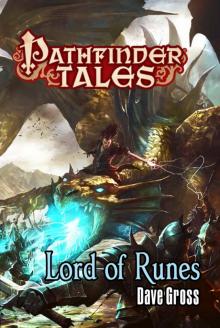 Pathfinder Tales- Lord of Runes
Pathfinder Tales- Lord of Runes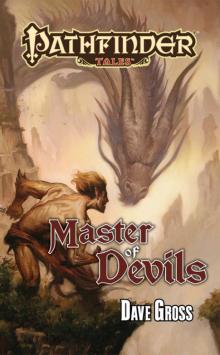 Master of Devils
Master of Devils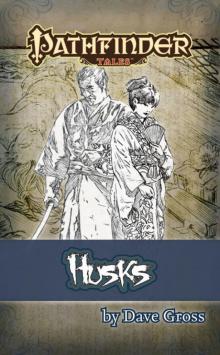 Husks
Husks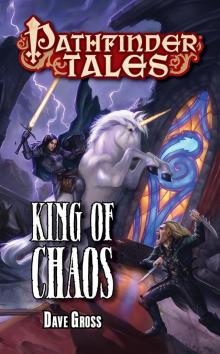 King of Chaos
King of Chaos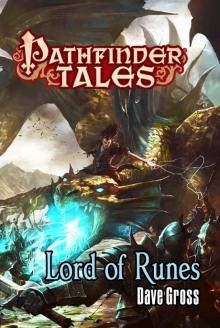 Pathfinder Tales: Lord of Runes
Pathfinder Tales: Lord of Runes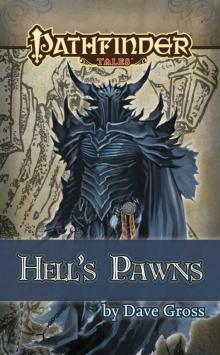 Hell's Pawns
Hell's Pawns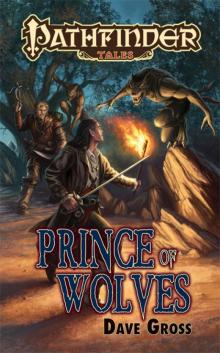 Prince of Wolves
Prince of Wolves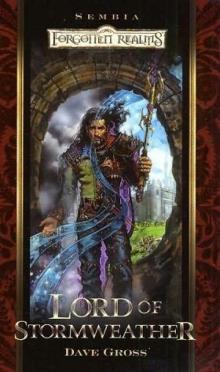 Lord of Stormweather fr-7
Lord of Stormweather fr-7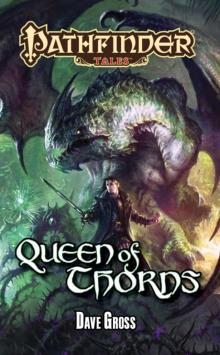 Queen of Thorns
Queen of Thorns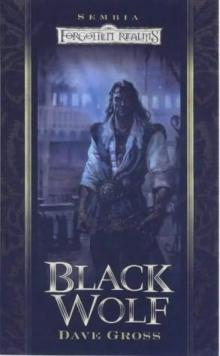 Black Wolf s-4
Black Wolf s-4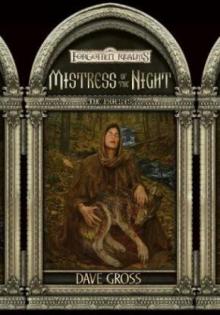 Mistress of the Night p-2
Mistress of the Night p-2